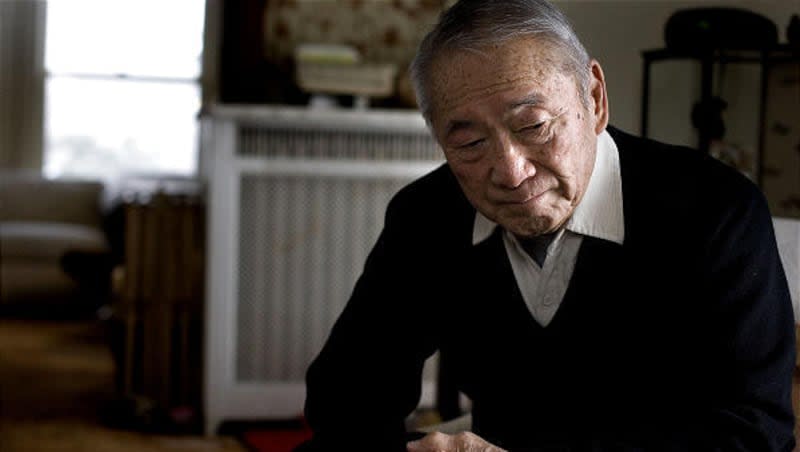Utah’s first minority judge, Raymond Uno, dies at 93

SALT LAKE CITY — Retired Judge Raymond Sonji Uno, a civil rights advocate and Utah’s first minority judge, died Friday at the age of 93.
The Japanese American was born in Ogden on Dec. 4, 1930, and moved with his family to El Monte, California, where he went to a segregated grade school.
On Feb. 19, 1941, (what is now known as the Day of Remembrance) Uno, then 11, was forced out of his house in California, like 110,000 other people of Japanese descent, and placed in the Heart Mountain, Wyoming, internment camp, one of 10 camps around the nation.
“We were only able to take with us the clothes we were wearing and what we could carry in our two hands,” he told the Deseret News in a 1995 interview.
His dad died about nine months after his family entered the camp due to coronary thrombosis, a blood clot in the heart. His mother lived to 101.
For three years, his family stayed in an 18-foot-by-16-foot barrack, which contained a potbelly stove for heat, a table and cots for beds. Uno said freedom in the camp was minimal.
When his family was released, Uno moved to his aunt’s house in Ogden. Uno volunteered for military service, joining the Army’s 319th Military Intelligence Service as an interpreter, translator and interrogator. Later he was a special agent in the 441st Counterintelligence Corp in Tokyo, Japan, and was honorably discharged as a Korean War Veteran.
Uno worked in many positions, removing paint from bombers at Hill Air Force Base, carrying mail for the postal service, and laying railroad track.
He spent five years studying, earning a bachelor’s degree and a Juris Doctor degree from the University of Utah.
Uno was appointed to the Salt Lake Court bench in 1976. He served as Presiding 5th Circuit Court judge in 1978 and was elected to his 3 District Court position in 1984. Prior to his service on the bench, he was an assistant state attorney general.
He retired in 1990 as a 3rd District Court Senior Judge, with a reputation for compassion — in a 1987 Deseret News survey of attorneys, Uno ranked the most lenient sentencer.
“He liked to believe in people, and he’d give them probation to give them a chance to turn their lives around by proving themselves,” said a deputy Salt Lake County attorney, who spoke on condition of anonymity.
Uno attributed his compassion, in part, to his having served in an internment camp for Japanese-Americans during World War II.
Utah Attorney General Sean Reyes said, “Judge Uno was larger than life. His smile filled a room. While he was soft-spoken, caring and humble, he had a gravitas born of forceful conviction and indomitable will. His humor and humanity will be greatly missed.
“Judge Uno was a scholar and soldier, an athlete and activist, a gentleman and jurist, and a champion of civil rights and civility. He was a pioneer who opened doors for so many of us. He was our hero.”
The attorney general said, “I was a benefactor my entire career of his kindness and steadiness,” and that Reyes and his wife “absolutely loved the judge and send our deepest and most heartfelt sympathies to his amazing family.”
A statement from Uno’s family says he died peacefully in his sleep.

